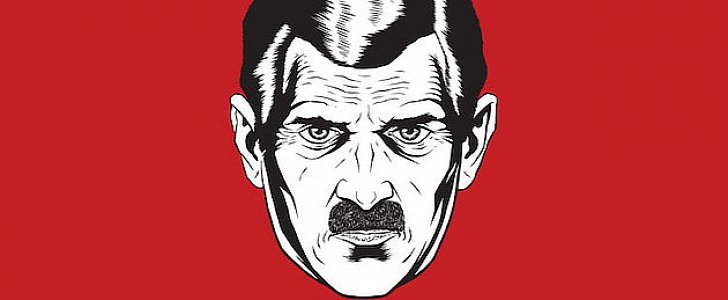The Metropolitan Police is testing – and fervently defending the use of – facial-recognition technology on their cameras, despite privacy concerns from regular people and various watchdogs. Amid the criticism, another voice is warning that these trials could be a stepping stone towards a fully-fledged nanny state, worse than Big Brother in George Orwell’s “1984” dystopia.
Nobody likes an alarmist, but Tony Porter, Independent Surveillance Camera Commissioner responsible for encouraging compliance with the surveillance camera code of practice, says it’s about high time we faced the reality. And that reality is that, if the British government doesn’t step in to strictly regulate new technology and how it might be used for surveillance purposes, “1984” will look like a dream compared to what the country will become.
As Porter sees it, facial recognition is a stepping stone for more intrusive methods of surveillance, for which there is already developed software. He takes issue with programs that can read lips or identify a person by their gait, and says the future is bleak if the state doesn’t regulate their use by the police. Porter’s criticism comes after the Met Police announced they would continue using facial recognition despite the fact that it was proved inefficient in terms of correct identification.
“It’s important to protect a free and open society and at the moment we are at risk of ceding that to the impact of technology,” Porter tells Standard in an interview. “The capability to run lip-sync technology to determine what people are saying would have a very suppressive effect. It would change the nature of our society. People wouldn’t feel they could have a conversation outside. What it means is a far-reaching, ubiquitous surveillance society where people yield their right to privacy.”
He compares existing surveillance methods, like police bodycams and dashcams, to new technology that could be used for the same purpose. His conclusion is that the latter needs regulating – and fast.
“With covert surveillance there’s a very tight regulatory lock, but with the type of technology I’m talking about – lip sync, gait technology – none of that falls under this sort of rigor,” Porter explains. “Given that it is capable of being as invasive as covert surveillance there must at least be a review of how we tolerate this in our society.”
Campaign group Big Brother Watch is on the same wavelength as Porter, noting that the UK is in the middle of an “epidemic” of facial recognition, which extends beyond crime-fighting into real estate, museums and casinos, and shopping centers.
As Porter sees it, facial recognition is a stepping stone for more intrusive methods of surveillance, for which there is already developed software. He takes issue with programs that can read lips or identify a person by their gait, and says the future is bleak if the state doesn’t regulate their use by the police. Porter’s criticism comes after the Met Police announced they would continue using facial recognition despite the fact that it was proved inefficient in terms of correct identification.
“It’s important to protect a free and open society and at the moment we are at risk of ceding that to the impact of technology,” Porter tells Standard in an interview. “The capability to run lip-sync technology to determine what people are saying would have a very suppressive effect. It would change the nature of our society. People wouldn’t feel they could have a conversation outside. What it means is a far-reaching, ubiquitous surveillance society where people yield their right to privacy.”
He compares existing surveillance methods, like police bodycams and dashcams, to new technology that could be used for the same purpose. His conclusion is that the latter needs regulating – and fast.
“With covert surveillance there’s a very tight regulatory lock, but with the type of technology I’m talking about – lip sync, gait technology – none of that falls under this sort of rigor,” Porter explains. “Given that it is capable of being as invasive as covert surveillance there must at least be a review of how we tolerate this in our society.”
Campaign group Big Brother Watch is on the same wavelength as Porter, noting that the UK is in the middle of an “epidemic” of facial recognition, which extends beyond crime-fighting into real estate, museums and casinos, and shopping centers.





